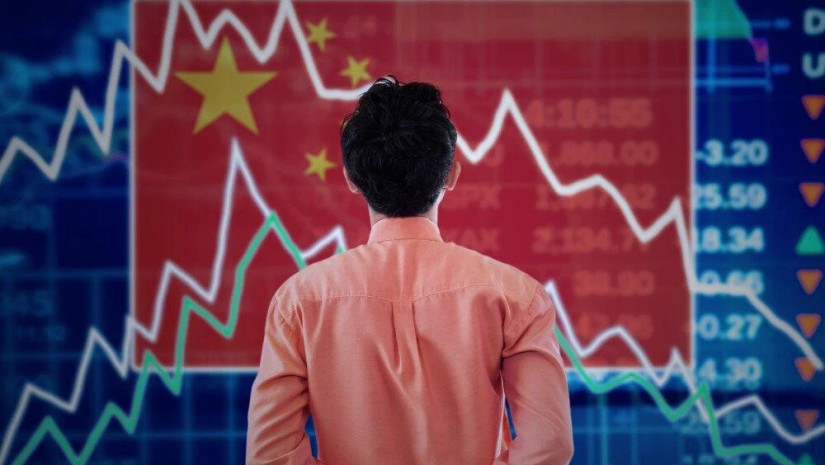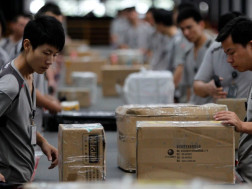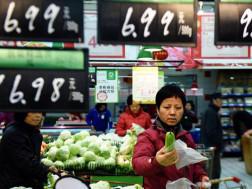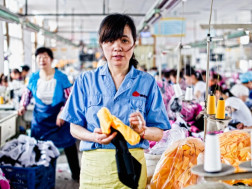China’s economic recovery is off to a modest start.
Migrant workers have mostly returned to work after China’s biggest holiday of the year, and children went back to school this week.
But preliminary data indicate overall growth isn’t roaring back on all cylinders yet, despite mainland China ending its Covid controls in early December.
For example, official loan data for January showed year-on-year growth in loans to businesses, but a sharp drop in that to households.
“The mixed data send a clear message that markets should not be too bullish about growth this year,” Nomura’s chief China Economist Ting Lu said in a report Monday.
“This pattern has rich implications for different asset classes and commodity types, so closely tracking these high frequency data is warranted,” he said.
Road and subway traffic in cities is back above pre-pandemic levels in 2019, the Nomura report said, citing mid-February data. Turnover in freight transport is still down from a year ago, the report said.
It pointed out that new home sales remained below last year’s levels, mostly dragged down by falling sales in mid-sized cities, and weighing on construction activity.
Sluggish demand for mortgages showed up in a slightly steeper drop in medium- and long-term household loans than short-term ones.
The “unemployment rate is still high which keeps household confidence weak,” Zhiwei Zhang, president and chief economist at Pinpoint Asset Management, said in a note about January’s loan data. “I’d expect household confidence to improve as well in the coming months, but it will likely be a gradual process.”
China’s National Bureau of Statistics does not break out retail sales, industrial production or fixed asset investment data for January due to distortions from the Lunar New Year. The holiday’s dates on the Gregorian calendar vary each year.
However, the bureau released inflation data for January, which showed tepid demand as consumer prices went up by 2.1% from a year ago — slightly less than what analysts polled by Reuters had expected. Excluding food and energy, the so-called core consumer price index rose by 1% in January, recovering to the same pace as June 2022.
The producer price index that measures input costs for factories dropped by 0.8% in January from a year ago, more than the 0.5% decline forecast by a Reuters’ poll.
In another sign of falling global demand, China’s yuan hit a five-week low against the U.S. dollar on Monday after data showed South Korea’s average daily exports for the first 10 days of February fell by 14.5% after adjusting for the Lunar New Year holiday, according to Reuters.
Policy outlook
China’s policymakers are expected to remain supportive of the domestic economy. It also remains to be seen how demand from China’s growth picks up as businesses resume work and travel after the Lunar New Year holiday.
Robin Xing, chief China economist at Morgan Stanley, pointed out that in-person meetings are particularly important for doing business in China, and that such interactions weren’t easily feasible last year.
He expects overall policy will be loose this year, and that regulators have returned to “growth-focused policy pragmatism.”
It’s “the most favorable backdrop for private sector ‘animal spirits’ in four years,” Xing said in a report. He forecasts China’s GDP can grow by 5.7% this year.
Beijing is widely expected to set a GDP target of around 5% or more in March.
While warning of a mixed picture, Nomura’s Lu has also raised his GDP forecast to 5.3% due to the earlier-than-expected end to the pandemic and Covid controls.
“We still believe inflation is not a major concern in China this year,” he said, “and we expect policy to remain accommodative in 2023,” CNBC reports.
















